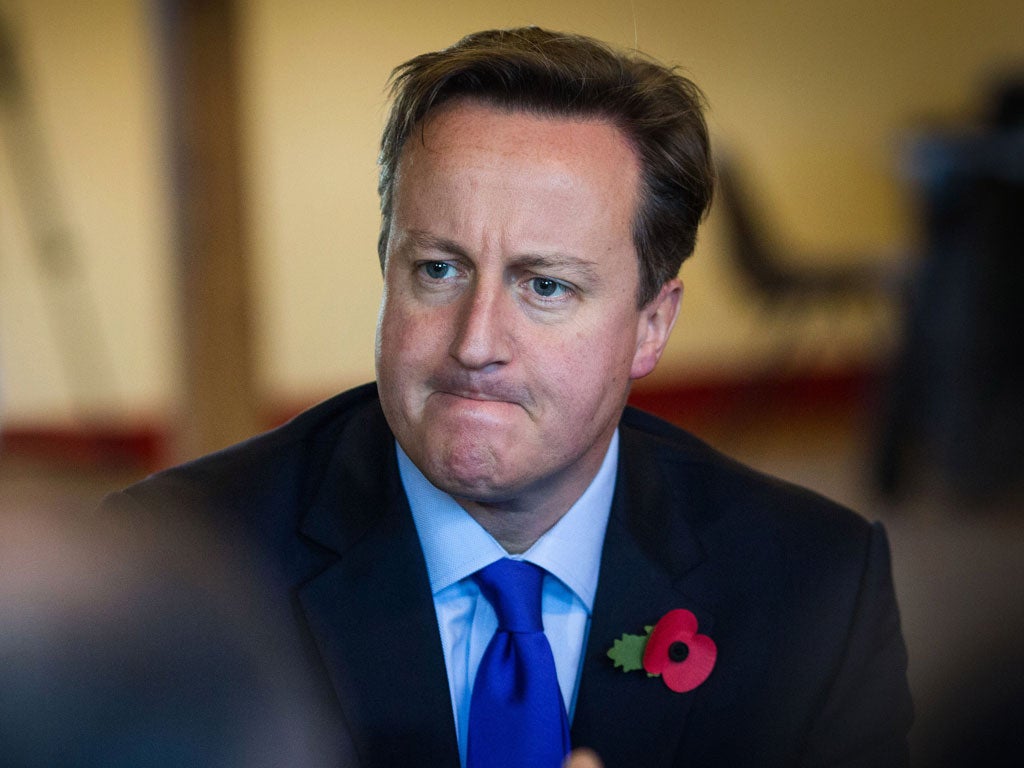Europe is the glass jaw of the Tory party. It has taken a hit

Last Wednesday's Tory rebels, revelling in the blow they conspired with Labour to cause the Prime Minister, have claimed they gave a mandate to David Cameron which stands him in good stead when he goes to discuss the budget of the European Union. Some mandate! It is a mandate he did not want, cannot fulfil and which breaches Britain's agreement with France and Germany to cap EU budget increases in real terms. Disingenuous or what? If not that, how about naive?
Defeats like that damage a prime minister's authority in Britain and his credibility in Europe. Perception is as important in leadership as substance, as I know only too well. It takes a spurious optimism to claim that Thursday's screaming headlines will somehow fortify Mr Cameron in his budget endeavours. It may not be quite as dire as Browning's "Never glad confident morning again" but the Tory anti-Europeans haven't just smelled blood; they have tasted it.
And who can guarantee that with the aid of a complicit Labour Party they will not use every vote on Europe to seek to embarrass their leader? Europe is the glass jaw of the Tory party. Some of their dissidents have been heard to say that Mr Cameron should behave like Margaret Thatcher. But it was her "No, no, no" to Europe which was the straw that broke Geoffrey Howe's back, and led to the speech that ultimately led to her dethronement. And what about that good man John Major? Sandbagged by an irreconcilable group of no more than 30 Euro rebels who took the opportunity of the proceedings in the Maastricht Treaty to damage their party out of office for 13 years.
The Coalition Agreement, with its reference to a referendum if there is any proposal to transfer substantial powers to Brussels, was designed to close down the European argument. But as if from dragon's teeth the dissenters have sprung up. What did for Labour in 1979 and the Tories in 1987 and maybe even contributed to Labour's loss in 2010 was profound internal disagreement.
So where now for the Government? Germany, France, the Netherlands and Finland were powerful allies to have in Europe to control the EU budget and their collective weight was much augmented by Britain's association.
What reliance will Angela Merkel or François Hollande feel they can place on the UK in the future? And what happens if the best deal the Prime Minister can achieve at the forthcoming summit is a real terms cap on the budget as he proposed and the House of Commons rejected? What if he exercises a veto and no unanimous agreement is possible? The automatic increase already provided for will then kick in. As Nick Clegg forcefully pointed out on Thursday, there is now no possibility of an agreed reduction in real terms in the budget.
And what of Labour? Well, now we know its sole motive is to embarrass the Government. No need any more for declarations of high principle, it is all to be low politics.
So long as the United Kingdom is perceived as being in a state of semi-detachment, what chance is there of forging alliances for reform? The irony is that Wednesday's vote, with its impact on the alliance for the budget, undermines Britain's opportunity to influence reform, a classic illustration of the theory of unintended consequences.
Sir Menzies Campbell is a former leader of the Liberal Democrats

Join our commenting forum
Join thought-provoking conversations, follow other Independent readers and see their replies